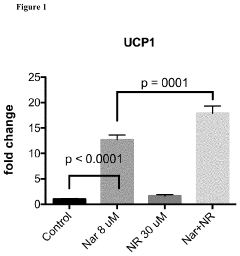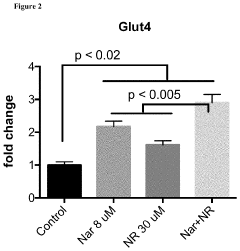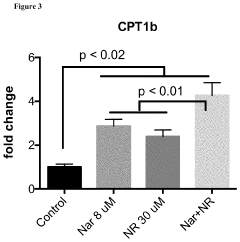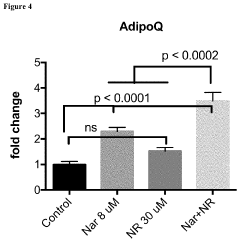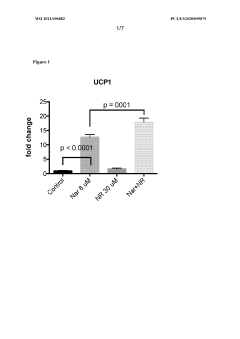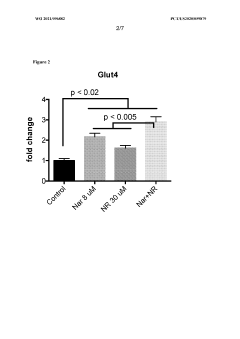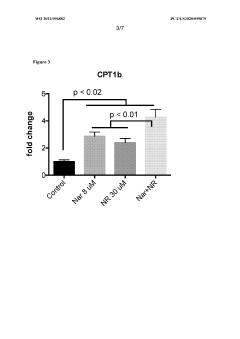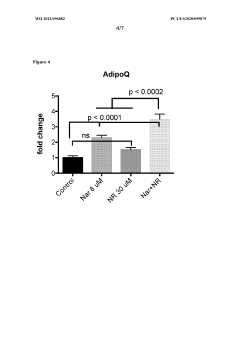Nicotinamide Mononucleotide: Enhancing Lipid Metabolism
NMN and Lipid Metabolism: Background and Objectives
Nicotinamide Mononucleotide (NMN) has emerged as an effective compound in the field of metabolic health, particularly in its potential to enhance lipid metabolism. This area of research has gained significant attention due to the global rise in metabolic disorders and the pressing need for effective interventions.
The journey of NMN in scientific research began with the discovery of its role as a precursor to Nicotinamide Adenine Dinucleotide (NAD+), a critical coenzyme involved in numerous cellular processes. As NAD+ levels decline with age, researchers hypothesized that boosting NAD+ through NMN supplementation could have beneficial effects on metabolic health, including lipid metabolism.
The intersection of NMN and lipid metabolism represents a convergence of two critical areas in biomedical research. Lipid metabolism, encompassing the synthesis, breakdown, and utilization of fats in the body, plays a crucial role in energy homeostasis, cell membrane integrity, and overall metabolic health. Dysregulation of lipid metabolism is implicated in various pathological conditions, including obesity, cardiovascular diseases, and metabolic syndrome.
Recent years have witnessed a surge in research exploring the potential of NMN to modulate lipid metabolism. Initial studies in animal models have shown promising results, demonstrating NMN's ability to improve insulin sensitivity, reduce fat accumulation, and enhance lipid oxidation. These findings have sparked interest in translating these benefits to human health applications.
The primary objective of current research in this field is to elucidate the mechanisms by which NMN influences lipid metabolism and to assess its potential as a therapeutic intervention for metabolic disorders. Researchers aim to understand how NMN supplementation affects key enzymes and pathways involved in lipid synthesis, storage, and breakdown.
Furthermore, there is a growing focus on exploring the dose-dependent effects of NMN on lipid metabolism, as well as potential synergistic effects when combined with other interventions such as exercise or dietary modifications. The long-term goal is to develop evidence-based strategies for using NMN to improve metabolic health and prevent or manage lipid-related disorders.
As research progresses, the scientific community is also addressing critical questions regarding the safety, efficacy, and optimal delivery methods of NMN for enhancing lipid metabolism in humans. This includes investigating potential side effects, determining ideal dosage regimens, and exploring various administration routes to maximize bioavailability and effectiveness.
The evolving landscape of NMN research in the context of lipid metabolism holds promise for developing novel therapeutic approaches to combat the rising tide of metabolic disorders. As we delve deeper into this field, the potential applications of NMN in enhancing lipid metabolism may extend beyond traditional medical interventions, potentially influencing nutritional strategies and lifestyle recommendations for maintaining metabolic health across the lifespan.
Market Analysis for NMN Supplements
The global market for Nicotinamide Mononucleotide (NMN) supplements has experienced significant growth in recent years, driven by increasing consumer awareness of the potential health benefits associated with NMN, particularly in the realm of lipid metabolism enhancement. This market expansion is closely tied to the growing interest in anti-aging and longevity-promoting supplements.
The NMN supplement market is primarily segmented into capsules, tablets, and powder forms, with capsules currently dominating the market share due to their convenience and precise dosage control. Geographically, North America and Asia-Pacific regions lead in market size, with the United States and Japan being the largest individual country markets.
Consumer demographics for NMN supplements are diverse but tend to skew towards middle-aged and older adults who are proactively seeking ways to maintain their health and potentially slow down the aging process. There is also a growing segment of younger consumers interested in preventive health measures, contributing to market expansion.
The market is characterized by a mix of established pharmaceutical companies and newer, specialized supplement manufacturers. Key players in the NMN supplement market include companies like Shinkowa Pharmaceutical, GeneHarbor Biotechnology, and Herbalmax, among others. These companies are investing heavily in research and development to improve product efficacy and expand their product lines.
Market growth is further fueled by ongoing scientific research into NMN's effects on lipid metabolism and overall health. Positive results from studies, particularly those demonstrating NMN's potential to enhance lipid metabolism and improve cardiovascular health, have bolstered consumer confidence and driven demand.
However, the market faces challenges such as regulatory uncertainties in different countries, varying quality standards among manufacturers, and the need for more long-term human studies to conclusively prove NMN's benefits. These factors can impact consumer trust and market stability.
Despite these challenges, the NMN supplement market is projected to continue its growth trajectory. Factors contributing to this positive outlook include increasing health consciousness among consumers, rising disposable incomes in emerging markets, and ongoing research that may uncover additional health benefits of NMN supplementation.
As the market matures, we can expect to see more innovative product formulations, such as combination supplements that pair NMN with other complementary compounds to enhance its effects on lipid metabolism and overall health. Additionally, there may be a trend towards more personalized supplementation regimens based on individual health profiles and genetic factors.
Current Challenges in NMN Research
Despite the promising potential of Nicotinamide Mononucleotide (NMN) in enhancing lipid metabolism, several challenges persist in the field of NMN research. One of the primary obstacles is the limited understanding of NMN's long-term effects on human health. While short-term studies have shown positive results, the consequences of prolonged NMN supplementation remain largely unknown, necessitating extensive longitudinal studies.
Another significant challenge lies in the bioavailability and stability of NMN. The compound is rapidly metabolized in the bloodstream, potentially reducing its efficacy. Researchers are grappling with developing delivery methods that can enhance NMN's stability and ensure its efficient uptake by target tissues, particularly in the context of lipid metabolism enhancement.
The optimal dosage for NMN supplementation presents another hurdle. Current research shows varying results across different dosage levels, and the ideal amount for maximizing lipid metabolism benefits while minimizing potential side effects is yet to be definitively established. This variability in dosage efficacy complicates the development of standardized treatment protocols.
Furthermore, the mechanism by which NMN influences lipid metabolism is not fully elucidated. While it is known to boost NAD+ levels, which play a crucial role in cellular energy production and lipid metabolism, the exact pathways and molecular interactions involved in this process require further investigation. This gap in knowledge hinders the development of targeted interventions and combination therapies.
The cost of NMN production and purification remains a significant barrier to widespread research and potential therapeutic applications. Current synthesis methods are expensive, limiting the scale of clinical trials and accessibility for potential consumers. Developing more cost-effective production techniques is crucial for advancing NMN research and its potential applications in lipid metabolism enhancement.
Regulatory challenges also pose a significant obstacle. The classification of NMN as a dietary supplement in some countries and a potential drug in others creates a complex landscape for research and commercialization. Harmonizing regulatory approaches and establishing clear guidelines for NMN use in lipid metabolism enhancement is essential for progressing research and potential therapeutic applications.
Lastly, the interaction of NMN with other medications and supplements, particularly those involved in lipid metabolism, is not well understood. This lack of knowledge raises concerns about potential drug interactions and contraindications, necessitating comprehensive studies to ensure the safe use of NMN in diverse patient populations.
Existing NMN Delivery Methods
01 NMN's effect on lipid metabolism
Nicotinamide Mononucleotide (NMN) has been shown to influence lipid metabolism in various ways. It can enhance fatty acid oxidation, regulate cholesterol synthesis, and improve overall lipid profile. NMN supplementation may lead to reduced triglyceride levels and increased HDL cholesterol, potentially offering benefits for cardiovascular health.- NMN's effect on lipid metabolism: Nicotinamide Mononucleotide (NMN) has been shown to influence lipid metabolism in various ways. It can enhance fatty acid oxidation, regulate cholesterol synthesis, and improve overall lipid profile. NMN supplementation may lead to reduced triglyceride levels and increased HDL cholesterol, potentially benefiting cardiovascular health.
- NMN's role in mitochondrial function and energy metabolism: NMN plays a crucial role in enhancing mitochondrial function and energy metabolism. It serves as a precursor to NAD+, which is essential for mitochondrial energy production. By improving mitochondrial efficiency, NMN can positively impact lipid metabolism, potentially leading to increased fat burning and improved metabolic health.
- NMN's impact on glucose metabolism and insulin sensitivity: Research suggests that NMN supplementation can improve glucose metabolism and enhance insulin sensitivity. This effect is closely linked to lipid metabolism, as improved insulin sensitivity can lead to better regulation of lipid storage and utilization in the body. NMN may help in maintaining healthy blood sugar levels and reducing the risk of metabolic disorders.
- NMN's potential in treating metabolic disorders: NMN has shown promise in the treatment of various metabolic disorders related to lipid metabolism. Studies indicate that NMN supplementation may help in managing conditions such as obesity, non-alcoholic fatty liver disease, and metabolic syndrome. Its ability to modulate lipid metabolism and improve overall metabolic health makes it a potential therapeutic agent for these conditions.
- Formulations and delivery methods for NMN in lipid metabolism applications: Various formulations and delivery methods have been developed to enhance the efficacy of NMN in lipid metabolism applications. These include liposomal formulations, sustained-release preparations, and combination therapies with other metabolic enhancers. Such formulations aim to improve NMN's bioavailability and its effects on lipid metabolism.
02 NMN's role in mitochondrial function and energy metabolism
NMN plays a crucial role in enhancing mitochondrial function and energy metabolism. It serves as a precursor to NAD+, which is essential for mitochondrial energy production. By improving mitochondrial efficiency, NMN can boost overall cellular energy metabolism, potentially affecting lipid utilization and storage.Expand Specific Solutions03 NMN's impact on glucose metabolism and insulin sensitivity
Research suggests that NMN supplementation can improve glucose metabolism and enhance insulin sensitivity. This effect on glucose homeostasis indirectly influences lipid metabolism, as improved insulin sensitivity can lead to better regulation of lipid storage and utilization in the body.Expand Specific Solutions04 NMN's potential in treating metabolic disorders
NMN has shown promise in the treatment of various metabolic disorders, including obesity and non-alcoholic fatty liver disease (NAFLD). Its ability to modulate lipid metabolism makes it a potential therapeutic agent for conditions characterized by dysregulated lipid homeostasis.Expand Specific Solutions05 Formulations and delivery methods for NMN in lipid metabolism applications
Various formulations and delivery methods have been developed to enhance the bioavailability and efficacy of NMN for lipid metabolism applications. These include liposomal formulations, sustained-release preparations, and combination therapies with other metabolic enhancers to maximize the impact on lipid metabolism.Expand Specific Solutions
Key Players in NMN Production and Research
The market for Nicotinamide Mononucleotide (NMN) in enhancing lipid metabolism is in a growth phase, with increasing research and commercial interest. The global NMN market size is expanding rapidly, driven by growing awareness of its potential health benefits. Technologically, NMN research is advancing, with companies like ChromaDex, Inc., Nusirt Sciences, Inc., and Metro International Biotech LLC leading the way. Academic institutions such as Washington University in St. Louis and Vanderbilt University are also contributing significantly to the field. The technology is progressing from basic research to clinical applications, with several companies and research institutions exploring NMN's potential in various health-related areas, including lipid metabolism enhancement.
ChromaDex, Inc.
Nusirt Sciences, Inc.
Breakthrough Studies on NMN and Lipid Metabolism
- The use of compositions combining naringenin or other flavonoids with sirtuin pathway activators like nicotinamide riboside (NR) or nicotinamide mononucleotide (NMN) to stimulate browning in fat cells, enhancing mitochondrial biogenesis, thermogenesis, fatty acid oxidation, weight loss, and insulin sensitivity.
- Compositions and methods involving naringenin and other flavonoids in combination with sirtuin pathway activators like nicotinamide riboside (NR) or nicotinamide mononucleotide (NMN) to stimulate browning in adipocytes, enhancing mitochondrial biogenesis, thermogenesis, fatty acid oxidation, weight loss, and insulin sensitivity.
Safety and Regulatory Considerations for NMN
The safety and regulatory considerations for Nicotinamide Mononucleotide (NMN) are crucial aspects that require thorough examination as this compound gains popularity in the field of lipid metabolism enhancement. While NMN shows promise in improving metabolic health, its widespread use necessitates a comprehensive understanding of potential risks and regulatory frameworks.
From a safety perspective, current research indicates that NMN is generally well-tolerated in human studies. However, long-term effects and potential interactions with other medications remain areas of ongoing investigation. Reported side effects are typically mild and may include nausea, headaches, and fatigue. It is essential to note that most studies have been conducted on healthy adults, and the effects on specific populations such as pregnant women, children, or individuals with chronic diseases are not yet fully understood.
Regulatory bodies worldwide are still in the process of establishing clear guidelines for NMN supplementation. In the United States, the Food and Drug Administration (FDA) has not yet approved NMN as a drug, but it is currently available as a dietary supplement. This classification means that manufacturers are responsible for ensuring product safety before marketing, but pre-market approval is not required.
The regulatory landscape for NMN varies significantly across different countries. Japan, for instance, has approved NMN as a food additive, reflecting a more permissive approach. In contrast, the European Food Safety Authority (EFSA) has not yet authorized NMN as a novel food, which limits its availability in European Union member states.
Quality control and standardization of NMN products present significant challenges. The absence of universal manufacturing standards can lead to variations in product purity and potency. Regulatory bodies and industry stakeholders are working towards establishing Good Manufacturing Practices (GMP) specific to NMN production to ensure consistency and safety across different brands and formulations.
As research on NMN's effects on lipid metabolism continues to evolve, regulatory frameworks are likely to adapt. There is a growing need for standardized dosing recommendations and clearer labeling requirements. Additionally, as more data becomes available on long-term use and potential interactions, regulatory bodies may implement more stringent safety assessments and post-market surveillance protocols.
The intersection of NMN supplementation with existing medications, particularly those used in lipid management, is an area that requires careful consideration. Healthcare providers and regulatory agencies must work together to develop guidelines for safe co-administration and potential contraindications.
In conclusion, while NMN shows promise in enhancing lipid metabolism, the regulatory landscape is still evolving. Continued research, coupled with proactive engagement between scientists, industry leaders, and regulatory bodies, will be crucial in establishing a robust framework that ensures both safety and efficacy in the use of NMN for metabolic health improvement.
Potential Applications in Metabolic Disorders
Nicotinamide Mononucleotide (NMN) has shown promising potential in addressing various metabolic disorders, particularly those related to lipid metabolism. The compound's ability to enhance NAD+ levels in cells has far-reaching implications for metabolic health, making it a subject of intense research in the field of metabolic disorders.
One of the primary applications of NMN in metabolic disorders is in the treatment of obesity and related conditions. Studies have demonstrated that NMN supplementation can increase fat oxidation and energy expenditure, potentially aiding in weight management. This effect is particularly significant in the context of age-related metabolic decline, where NMN may help maintain a healthy metabolic rate.
In the realm of diabetes management, NMN has shown potential in improving insulin sensitivity and glucose tolerance. By enhancing mitochondrial function and promoting cellular energy production, NMN may help regulate blood sugar levels more effectively. This could be particularly beneficial for individuals with type 2 diabetes or those at risk of developing the condition.
Cardiovascular health is another area where NMN's metabolic effects could prove valuable. The compound's ability to improve lipid profiles, including reducing triglyceride levels and increasing HDL cholesterol, may contribute to better cardiovascular outcomes. Additionally, NMN's potential to enhance endothelial function could have protective effects against atherosclerosis and other cardiovascular diseases.
Non-alcoholic fatty liver disease (NAFLD), a condition closely linked to metabolic syndrome, is another potential target for NMN-based interventions. Preliminary research suggests that NMN may help reduce liver fat accumulation and improve liver function, offering a potential therapeutic approach for this increasingly prevalent condition.
The neuroprotective effects of NMN, while not directly related to lipid metabolism, may have indirect benefits for metabolic health. By supporting brain health and cognitive function, NMN could potentially aid in maintaining healthy eating behaviors and lifestyle choices, which are crucial for overall metabolic health.
As research in this field progresses, it is likely that new applications for NMN in metabolic disorders will emerge. The compound's ability to influence fundamental cellular processes related to energy metabolism positions it as a versatile tool in addressing a wide range of metabolic challenges. However, further clinical studies are needed to fully elucidate the efficacy and safety of NMN-based interventions in various metabolic disorders.
